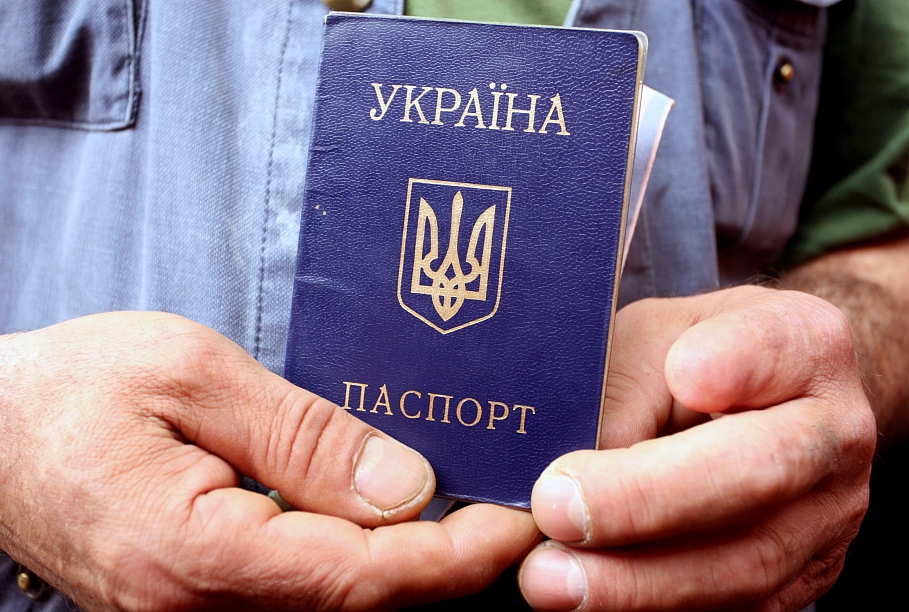The process of integration and adaptation is the prime concern for most families, as would naturally be expected for the suddenly uprooted, however there is no state program in Latvia that would help them in the process. According to the state authorities in charge of the field the system is appropriate and no changes are necessary, reported Sintija Ambote of Latvian Public Radio Friday.
Katerina Ščerbina brought her family to Jelgava on the spur of the moment in May from Kiev, which seemed to be descending into crime and uncertainty further every day.
“The energy of the shooting and bloodshed (at Maidan) hasn’t gone away anywhere in Kiev,” she told LR. “We’d go back if there were peace there.”
While her husband Valentīns and their one-year-old son have received resident permits, as he has two sons by previous marriage already living in Latvia, however the PMLP has once now rejected Katerina’s application for residency along with her daughter Kristīna, and they await a decision on asylum by February.
The family was unhappily the subject of media attention previously this fall when Kristīna got into an altercation with peers at an after-school activity, bringing attention to the plight of the few dozen Ukrainian refugees trying to adjust to a new, but they hope temporary life in Latvia.
Latvia’s Ukrainian Congress, the national ethnic minority group’s community non-governmental organization (NGO) confirms that the stress of asylum-seekers is mostly due to the foreign environment and strange situation they are thrust into.
“Many don’t openly admit to being refugees from elsewhere, as far as they can help it, they’re afraid of the attitude amongst other nationalities,” says the Ukrainian Congress chairman Mikola Pavļuks.
He predicted that more families besides the already 15 or so that have applied in Latvia for asylum from the conflicts in Crimea, Donetsk, Lugansk or Dnepropetrovsk could be expected:
“The number of refugees is increasing. Winter is here, they can’t live in tents. The situation is critical there and any nation, even another European state would have trouble ensuring room, board and food for its displaced people.”
Refugee children are perhaps most vulnerable to the suffering they’ve seen – explosions, corpses, war – they’re a bit reserved about sharing their experience. The NGO leader said that Latvia has a well-organized system of social support at schools and after school, kids are allotted free lunches and public transportation.
Riga’s Ukrainian High School admitted 11 pupils from families having purchased residency permits and enrolled their children here ahead of time. Others have been sent here to live with locally residing grandparents while the situation at home remains uncertain, explained school counselor Egīls Vilkaušs:
“We have a very friendly and understanding student body, the kids are helping their new Ukrainian classmates get oriented in Riga. Those that got here by September are already feeling used to their new home for now, that’s important. At first we didn’t know what kind of curriculum to give them, never had refugee students before, so we proposed a flexible program of classes they can follow, the rest of the time independent study in the library or with me.”
The staff never mentions the conflict between Russia and Ukraine to the children, staying focused on keeping the environment supportive and favorable, despite their parents’ troubles with such concerns as finding a place to live and work in a foreign country.
Maira Roze of the PMLP explained that about 70 citizens of Ukraine have currently applied for asylum in Latvia, following years when the number was closer to zero. Six asylum seekers from Ukraine are residing at the Mucenieki housing facility outside of Riga, where they live on a 2.5 euro daily stipend and have been issued their own kitchenware.
Most however have options to reside with relatives and acquaintances while they await the PMLP decision, which in some cases rejects the asylum plea because not every district of Ukraine is considered to be in a state of war or critical insecurity.
“Citizens of Ukraine who’ve been here a year or more and now seek asylum or just happen to be from one of the regions and want to keep living here,” she listed some of those denied asylum in Latvia. “Refugee status is given only in justified cases of fear of persecution for race, religion, nationality, social group or political conviction without recourse to one’s own rule-of-law enforcement in the entire state, not just a single region thereof,” she explained.
The Culture Ministry also provides integration programs and events for those who have been granted refugee status and residency permits. Roze acknowledged that the six-month term of waiting, which often extends to a year, doesn’t permit many to partake of these state programs.
However, the PMLP representative did not believe any particular exceptions or special regulations needed to be passed to deal with the situation of Ukrainian refugees in Latvia.
The Ukrainian Congress has collected donations of money and humanitarian aid for the arrived asylum seekers and any resident of Latvia may help with donations of clothing, for instance.
As for actual aid from Latvia to Ukraine, another shipment of donated goods is scheduled to go out December 15.





























